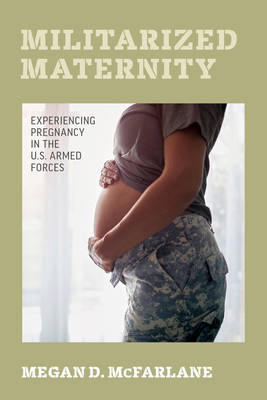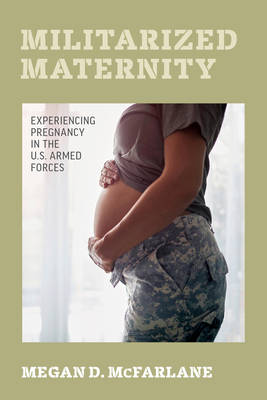
- Afhalen na 1 uur in een winkel met voorraad
- Gratis thuislevering in België vanaf € 30
- Ruim aanbod met 7 miljoen producten
- Afhalen na 1 uur in een winkel met voorraad
- Gratis thuislevering in België vanaf € 30
- Ruim aanbod met 7 miljoen producten
Zoeken
Militarized Maternity
Experiencing Pregnancy in the U.S. Armed Forces
Megan D McFarlane
Hardcover | Engels
€ 161,45
+ 322 punten
Uitvoering
Omschrijving
The rights of pregnant workers as well as (the lack of) paid maternity leave have increasingly become topics of a major policy debate in the United States. Yet, few discussions have focused on the U.S. military, where many of the latest policy changes focus on these very issues. Despite the armed forces' increases to maternity-related benefits, servicewomen continue to be stigmatized for being pregnant and taking advantage of maternity policies. In an effort to understand this disconnect, Megan McFarlane analyzes military documents and conducts interviews with enlisted servicewomen and female officers. She finds a policy/culture disparity within the military that pregnant servicewomen themselves often co-construct, making the policy changes significantly less effective. McFarlane ends by offering suggestions for how these policy changes can have more impact and how they could potentially serve as an example for the broader societal debate.
Specificaties
Betrokkenen
- Auteur(s):
- Uitgeverij:
Inhoud
- Aantal bladzijden:
- 262
- Taal:
- Engels
Eigenschappen
- Productcode (EAN):
- 9780520344686
- Verschijningsdatum:
- 8/04/2021
- Uitvoering:
- Hardcover
- Formaat:
- Genaaid
- Afmetingen:
- 145 mm x 213 mm
- Gewicht:
- 498 g

Alleen bij Standaard Boekhandel
+ 322 punten op je klantenkaart van Standaard Boekhandel
Beoordelingen
We publiceren alleen reviews die voldoen aan de voorwaarden voor reviews. Bekijk onze voorwaarden voor reviews.











